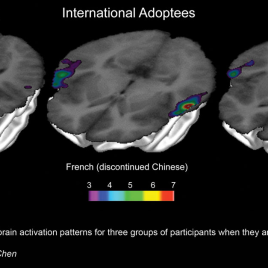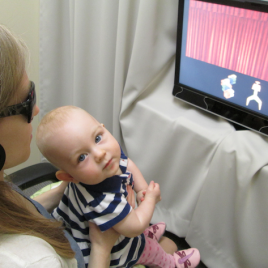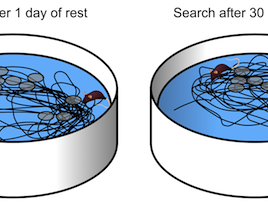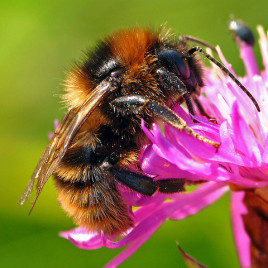People are known to have false memories where they remember experiences that never occurred. Can these errors also occur in animals? Researchers have found that bumblebees may be capable of creating false memories. The researchers made this observation by training bumblebees to expect a reward from either a solid coloured flower or a patterned one. […]
Tag: learning

Mapping unconcious memories of a lost language
A new study shows that our brains light up when we hear a language we once knew, even if we no longer understand it. The study used functional magnetic resonance imaging (fMRI) to study the brains of three groups of children: those who spoke only French, those who were bilingual in French and Chinese, and […]
‘Meaningful’ mistakes help learning at any age
A new study suggests that trial-and-error learning benefits memory in both young and old people, but only when errors are meaningfully related to the right answer. The study tracked 65 younger (average age 22) and 65 older (average age 72) people who tried to memorize lists of words. Making wrong guesses when given a clue […]
Gamers can be quick learners
A new study suggests that while people who play video games don’t necessarily have better sensorimotor skills than non-gamers, they are significantly faster at learning sensorimotor tasks. A group of 18 gamers and 18 non-gamers were asked to complete a task that involved keeping a cursor in the centre of a moving target. When the […]

Children tune into their parents, regardless of language
Monolingual children and bilingual children are equally good at learning new words, as long as they hear them from people who comes from their own language environment, a new study shows. Researchers tested thirty 17-month-old French-English bilinguals’ infants and thirty-one English monolinguals’ infants learning two simple pair of syllables (‘kem’ and ‘gem’) produced by an […]

How memories become knowledge
An experiment with mice sheds light on how the brain turns individual memories into knowledge over the course of time. Mice were trained to swim in a pool of water and look for a hidden platform that could be in one of several locations, with some locations more likely than others.Mice that were tested one […]
